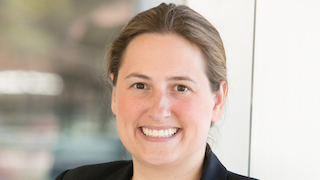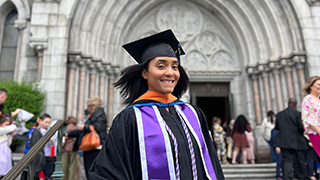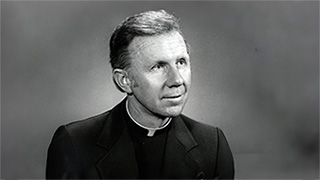Panel Considers the Future of Afghanistan - Seton Hall University
Tuesday, October 12, 2021

Last month, Professor Sara Bjerg Moller moderated the panel looking at the implications of the Taliban's take over of Afghanistan.
On the eve of the 20th anniversary of September 11, the School of Diplomacy hosted a panel discussing the implications of the Taliban takeover in Afghanistan. The panel featured Professor Sara Bjerg Moller, also the event's organizer and moderator, Professor Joseph Huddleston former Afghan Ambassador Sayed Jalal Karim, and the U.S. Institute of Peace's (USIP) Andrew Watkins.
Professor Moller opened the event by requesting the audience observe a moment of silence in recognition of the lives lost in both the tragic 9/11 attacks and the Afghanistan conflict. She then proceeded to introduce Sayed Jalal Karim, former Afghan ambassador to Saudi Arabia. Mr. Karim summarized recent events in Afghanistan, beginning with former U.S. President Trump's February 2020 Agreement for Bringing Peace in Afghanistan, also known as the Doha Agreement, with the Taliban. He then shared his thoughts on the new Taliban government and whether the international community should recognize this new government.
Following Karim's statement, Moller introduced Andrew Watkins, senior expert on Afghanistan for the USIP. Watkins provided his take on the Afghanistan conflict and discussed the international community's response to recent developments in Afghanistan. "In together, out together," said Watkins, who explained NATO's decision to pull out of Afghanistan in coordination with the American military withdrawal. Concerning regional countries' relations with the new government, Watkins said they will "quietly but pragmatically reposition themselves with the Taliban."
Moller addressed the public criticism that the U.S. is now weakened in the eyes of both its adversaries and allies following its withdrawal from Afghanistan. One of the arguments some critics have made is that because the U.S. withdrawal from Afghanistan suggests to some in the international community that American resolve is weakened, China will now be emboldened to seize Taiwan . "Personally, I find this idea ludicrous" said Dr. Moller, who pointed out that national interests change over time and vary by issue area, location, and strategic interests. She concluded her remarks with a word of caution. "We should be careful about inferring any bigger shifts in U.S. foreign policy with respect to (perceived) weakened U.S. credibility in the eyes of both adversaries and allies because of the U.S. withdrawal from Afghanistan."
Huddleston, an expert on secessionist, separatist, and self-determination movements, discussed the diplomatic recognition of the Taliban. He said, "It's not a question of if, but when." Countries' assessment of deciding whether to recognize the Taliban includes accepting the effective control doctrine or continuing the use of political tools as an incentive for concessions.
During the moderated Question & Answer (Q&A) segment, Moller asked Karim to expound on his statement that the Taliban is a unified movement. Karim responded that although the Taliban's organization includes different Emirs, all the Emirs are allegiant to one figurehead under the oath they have taken, stating that "no matter what happens, once the number one person in charge decides, everyone will listen." Watkins also emphasized the polycentric organization of the Taliban. "[The Taliban] have many different centers of power and powerful figures but [are] bound together by a sense of loyalty and obedience to a single figurehead and idea: all of [the Taliban factions] are brothers in a struggle to eject foreign influences from [Afghanistan]."
Following the panel, Moller gave an interview to the Diplomatic Envoy covering issues such as women's rights, the implications of the U.S. withdrawal for U.S. foreign policy, and whether the U.S. should recognize the Taliban. On the question of whether Taliban promises concerning female education rights can be trusted, Moller pointed out that international politics do not operate according to trust. Both state and non-state actors she said act according to their strategic interests and ideology. Regarding what role the collapse of the Afghan state may have on future U.S. foreign policy, Moller stated "I am not someone who believes the U.S. will suffer long term reputational consequences from its departure." She also noted that, despite a slow start, the U.S. airlift operation at Kabul International Airport eventually succeeded in evacuating more than 100,000 people from Afghanistan.
Asked whether she thinks the US government will eventually recognize the Taliban government, Moller remarked: "There are powerful arguments in favor and against official recognition. Only time will tell which will sway the Biden administration. That being said, I think they're very much in the ‘waiting and seeing' phase. The U.S. government wants to see how this so-called Taliban 2.0 (a term used to distinguish it from the Taliban of the 1990s) operates in power, before making any decisions."
Categories: Nation and World






